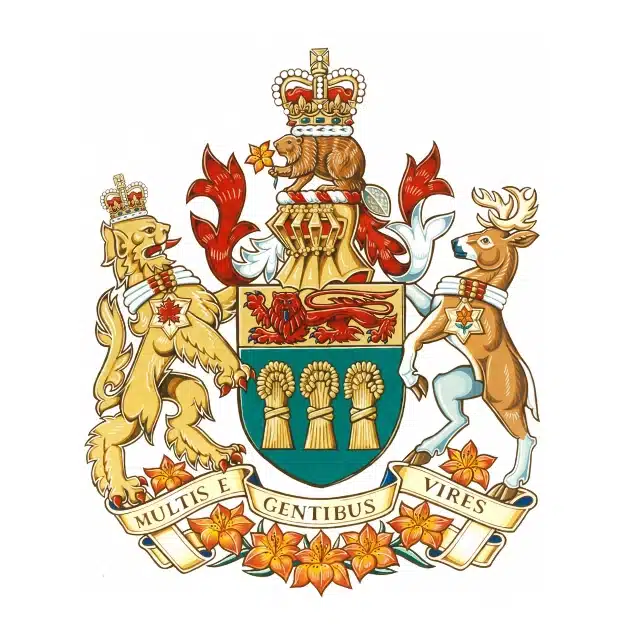Clerkship Positions
Court of Appeal | SaskatchewanCourts of Saskatchewan
Clerkship Positions
Court of Appeal
The Court of Appeal for Saskatchewan selects four law students each year to participate in its 12-month clerkship program. The law clerks are typically assigned to work for specific members of the Court.
Working as a law clerk is one of the most interesting articling positions available to law school graduates. Clerkships provide a unique window into the functioning of the courts. Unless you are appointed to the bench, it is unlikely you will ever have another opportunity to so closely examine the judiciary and the judicial process.
Court of Appeal clerks learn by working and associating with members of the Court and by attending appeal hearings. The clerkship experience offers valuable insights into the methods and techniques of practitioners, an introduction to the standards of professional behaviour expected of lawyers, and exposure to a full range of legal styles and abilities. The law clerk comes to know what to expect of others and what standards they will be required to meet when working as a legal professional.
Period of Employment
June 1, 2027, to May 31, 2028
Place of Work
Court of Appeal for Saskatchewan
2425 Victoria Avenue
Regina, SK S4P 4W6
The Court holds one week of sittings in Saskatoon approximately six times per year. Law clerks may have the opportunity to travel to Saskatoon at the Court’s request.
Professional Benefits
Legal Analysis
Law clerks are involved in both pre-hearing and post-hearing preparation of material. At the pre-hearing stage, clerks are often asked to prepare “bench” memos that summarize the appeal, assess its substantive content, and discuss dispositions of the case. At the post-hearing stage, clerks may be directed to undertake further research into the matters in issue. The value of the law clerks is their ability to identify the critical legal issues raised by an appeal and research them in a principled but practical way. Legal problem solving is a significant component of the job.
Much More than Legal Research
While judges assign numerous research topics to law clerks throughout their time at the Court, the responsibilities of clerks go far beyond writing memos. The Court provides opportunities to learn about the judicial process and to become familiar with members of the judiciary and the bar.
The law clerks’ primary role is to assist their assigned judges. Judges may use clerks to help sharpen and clarify ideas by filtering them through the clerk. Having researched the cases, read the materials filed and attended the oral submissions, clerks are particularly well-placed to be effective “sounding boards” and people with whom their judges can freely discuss legal issues and judicial decision-making.
The Court of Appeal for Saskatchewan is the highest appellate court for the province. As such, clerks to the Court are exposed to a wide range of criminal, administrative, constitutional and civil law issues.
Advocacy
By attending the hearing of appeals and chambers application in issue, clerks have the opportunity to witness first-hand the advocacy skills of leading members of the bar. Informal discussions with judges following such presentations afford the law clerk a candid assessment of courtroom advocacy and a judge’s perspective on how to prepare and present an appeal.
Writing and Drafting
Throughout the course of their terms, clerks assist the judges of the Court in the research, preparation and editing of reasons for judgment and orders. Clerks may also be asked to assist a judge in the preparation of speeches or academic articles on various legal issues presented or distributed by the judge outside the Court.
Registry File and Practice Management
Of necessity, law clerks become familiar with file and practice management of the Registrar of the Court of Appeal.
Professional Responsibility
Throughout their terms, law clerks can expect to be called upon by members of the Court to assess ethical issues regarding cases on appeal. This may include the confidentiality of legal matters, the avoidance of conflicts of interest and the duties of lawyers as “officers of the Court.”
Experiences beyond the Court
The Rules of The Law Society of Saskatchewan require that clerks serve for a period of two months outside the Court to a qualified principal. Typically, one month is spent at a private law firm and the other at another type of organization, such as the Ministry of Justice or Legal Aid Saskatchewan. This gives law clerks the opportunity to see and experience different work environments during the course of the articling year.
Life after Clerking
A clerkship at the Saskatchewan Court of Appeal is an excellent articling opportunity. Numerous employment and practice opportunities are available to students who clerk for the courts, as many employers recognize the value of the clerkship experience. Former law clerks have pursued a wide range of professional opportunities including employment at law firms across Canada as well as graduate studies and academic careers.
Financial Benefits
Salary
Approximately $5,205 per month, plus vacation pay (in lieu of vacation leave) earned at the rate of 1.25 days per month
Attendance at the Canadian Centre for Professional Legal Education (CPLED) Bar Admission Program (Saskatchewan) is at full pay
Entitlements
12 scheduled days off (SDOs) during the period of employment, which can be used at any time during the year, subject to approval
1.25 sick leave days per month (includes leave for family and bereavement purposes)
Benefits
Flexible benefit of more than $900 to offset fees associated with fitness activities or counselling, financial advice or payment of student loans
Public Employees Extended Health Care Plan
Public Employee Pension Plan
Group Life Insurance
Dental Plan
Disability Income Plan
Fees and Expenses
Payment of Law Society fees:
- Student-at Law application fee
- Articling fee
- Application for Admission as a lawyer fee
Canadian Bar Association membership
Payment of all CPLED program fees, reference materials and travel (mileage and hotel) expenses
Payment of Canadian Bar Association Introduction of Students Dinner
How To Apply
Applications must be submitted no later than October 31, 2025, and include:
- a cover letter
- a curriculum vitae;
- official transcript of all post-secondary marks (electronic is acceptable); and
- three letters of reference with, if possible, at least two of them being from a member of a law school faculty. Referees should send their letters directly to the address below (or by way of email).
Applications and requests for more information should be sent to:
Nadine Barnes
Executive Officer
Court of Appeal for Saskatchewan
2425 Victoria Avenue
Regina, Saskatchewan S4P 4W6
Tel: (306) 787-5409
Email
Offer of Employment
Any offer of employment will be subject to the candidate successfully undergoing a criminal record check and graduating from a recognized College of Law before June 1, 2027.

